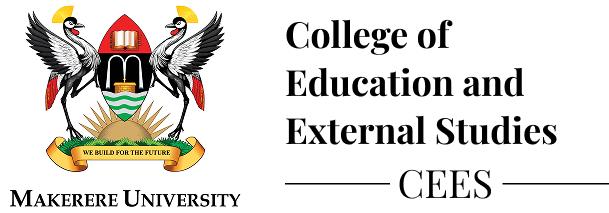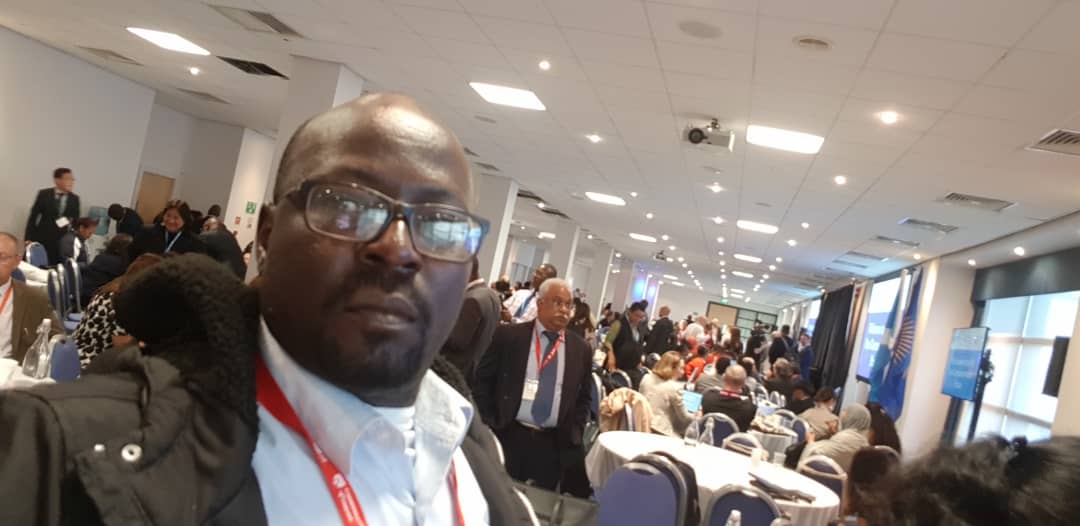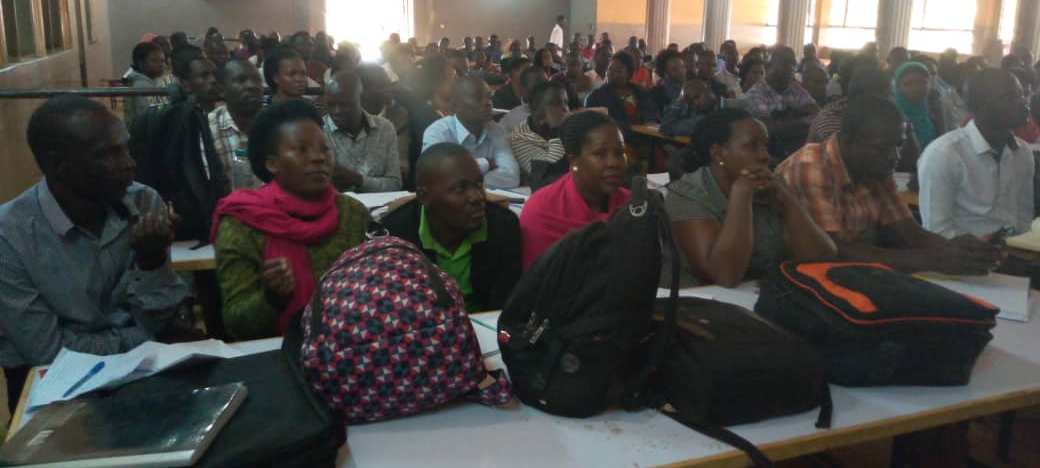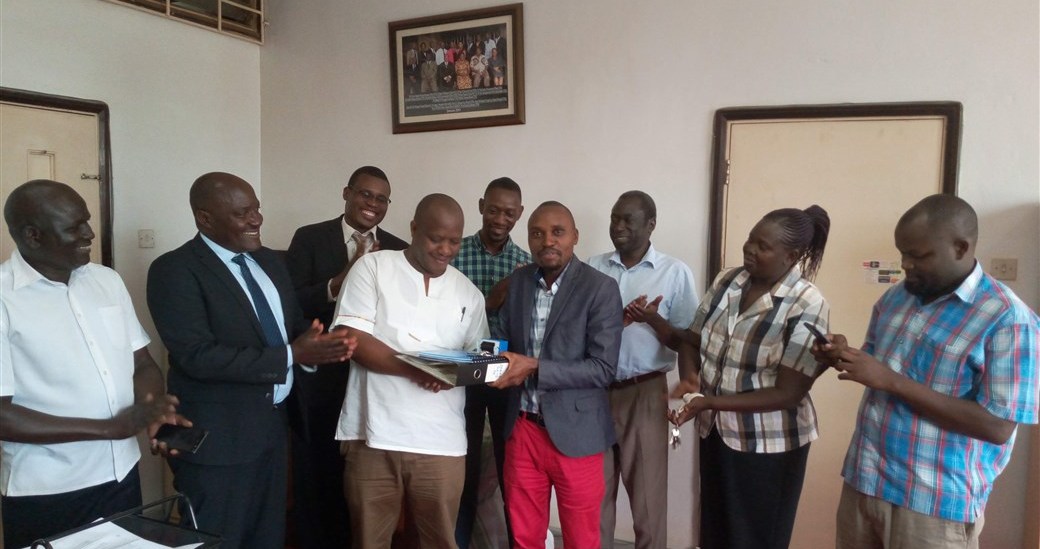Makerere University through its Center for Teaching and Learning Support implemented COL’s C-DELTA curriculum by conducting three training workshops for lecturers. The workshops were organized in the Institute of Open Distance and e-Learning of the College of Education and External Studies (CEES).
Makerere University embarked on the process of implementing the Commonwealth Digital Education Leadership Training in Action (C-DELTA). The C-DELTA is a long-term programme of the Commonwealth of Learning (COL) that intends to promote Digital Education (DE) in the Commonwealth nations. COL works with educational institutions, teachers and civil society organisations to assess digital education competencies, develop learning materials around digital education skills, provide training opportunities for teachers, and monitor student achievement and its relationship to livelihood. COL’s Curriculum for digital education leadership requires two components:
- Digital Education and
- Leadership in digital education, with digital literacies as the basis for both.
The Dean School of Education Associate Professor Betty Ezati hands a C-DELTA certificate to Dr. Caesar Jjingo from School of Education as the Deputy Principal CEES Associate Professor Paul Muyinda look on with a smile while Dr. David Kabugo, the Cordinator Centre for Teaching and Learning support reads names of successful participants
Deputy Principal of MAKCEES Associate Professor Paul Birevu Muyinda Applauds COL for Making Makerere University Stay on the Online Grid. As he was addressing the third cohort of participants in the C-DELTA workshop, Associate Prof. Paul Birevu Muyinda applauded COL not only for the generous funding it gave to Makerere University College of Education and External Studies , but also for the trainers’ guide, and presentation resources which COL provided to assist Makerere University to conduct the workshop for the lecturers. COL was also applauded for assigning lecturers manager roles to enable them to create and manage students’ groups on the C-DELTA platform. The deputy principal noted that this timely intervention that was making Makerere University stay on the online grid. He noted that as the Makerere University increasingly becomes a research-led university, living off the Grid would become virtually impossible for the lecturers and students. Click here to listen to the Deputy Principal’s speech at C-DELTA workshop.
Associate Professor Betty Ezati, the Dean School of Education Applauded COL and Urged Lecturers to do Continuous Professional Development in Digital Education Leadership, at Makerere University, every course that is presented to Senate for approval should have a component of blended eLearning. Basing on this new policy, the Dean School of Education Makerere University appreciated COL for its support in building the capacity of Makerere University staff in the area of blended learning in general and DEL in particular. She also urged participating lecturers to do Continuous Professional Development in the area of Digital Education Leadership (DEL). Click here to listen to the Dean’s view on the role of CPD in DEL
Participating Lecturers (Cohort 3)
More than 60 lecturers of the College of Education and External Studies (CEES) participated in the training. The training was coordinated by Dr. David Kabugo, the Ag. Director Center for Teaching and Learning Support (CTLS) and was organized in three (3) cohorts. Lecturers who participated in the training were nominated by their respective Deans and Heads of Department. By end of the training, lecturers have broadened their understanding of Digital Literacy, Digital Education and Digital Education Leadership, and have acquired practical knowledge and skills in DEL.
Below are some of lecturers’/participants learning reflections:
I am Sentumbwe Damalie, a teacher trainer at the School of Education, Makerere University. Below are my personal reflections on the C-DELTA training: The purpose of the workshop was for participants to be trained as digital education leaders. To this end, I can say I have learnt what it means to be a digital education leader. I had a chance to 'Google' myself. On the whole, my digital footprint online is positive. I think my shadow reflects a digital leader. With regard to Belshaw's 8 elements of digital literacy – cultural, cognitive, constructive, communicative, confident, creative, critical and civic, I still have a lot do in this area.I feel I have gained tremendous knowledge on how to engage online. Initially I did not know that whatever i do online leaves a footprint, even when I delete the posts. I have been signing up on social platforms without reading the Terms of Service. After this workshop I intend to check the terms and conditions of the networks where I am signed up so that I participate responsibly henceforth. The knowledge I have gained is going to help me develop into a responsible 'digital citizen'. Where do I want to go from here? First, I want to work on my online presence – digital identity. I want to 'Google' myself further to make sure that my presence online is positive on the different social and professional networks to which I am signed. Second, I want to identify the networks that can grow my personal and professional life and sign up on them. Third, I want to encourage my colleagues and Economics students to enroll for the C-DELTA training. What strategies? Firstly, a 'clean up' exercise designed at improving my online presence. Secondly, encouraging my 2 colleagues and students to enroll on the C-DELTA platform. I will act as their course manager. Generally, the course has been beneficial. In addition to the training as a digital leader, I have discovered that there are many online resources which I can use in my teaching and learning. Even within the resources, there are many formats I can have access. It has been interesting to learn about the the 5R permissions of Open Education Resources – Retain, Reuse, Revise, Remix and Redistributed. I plan to be a responsible user of OERs. What can I make open? I can make educational content open. I already have an blog on Word Press and Canvas. [Damalie Sentumbwe, On 23/03/2019 14:06]
Am Mr. TumwesigyeTibs Jimmy currently, an Assistant Lecturer in the Department of Adult and Community Education, School of Distance and Long Life Learning, College of Education and External Studies, Makerere University. I have used digital tools before for teaching and learning, communication and networking and I find this course very interesting and educative as I realize I have always taken some things for granted. DEL helps to ground oneself with knowledge and skills of using digital technology and passing it on to others as a leader or mentor. I had expected to gain more knowledge and skills from this workshop on how to use digital tools to transform teaching and learning as well as creating useful networks and collaborations. From this workshop I feel I have learnt a lot as far as being able to create a digital identity, tracing my digital footprint and interacting and using a variety of digital tools to collaborate and network as well as effectively utilizing OERs for my teaching and learning. I further learnt that we need to use OERs with caution and interrogate their authenticity. I strongly believe that with increased digital literacy I can be able to integrate and use a number of tools to foster digital education and hence become a digital education leader. However, my concern is that a number of stakeholders are digitally illiterate and therefore a lot of effort is needed to bring them on board. With this knowledge acquired I hope to pass it on to my students and colleagues for better education transformation. [Jimmy TumwesigyeTibs, On 23/03/2019 14:50]
Initially, we thought that digital literacy was only about having computer skills. But during the training our understanding of digital literacy and digital education leadership changed. Click here to listen to some of the participants’ learning reflections




